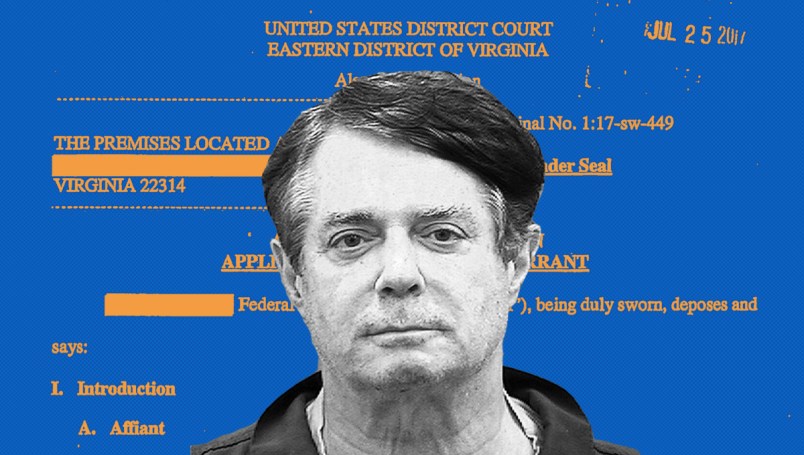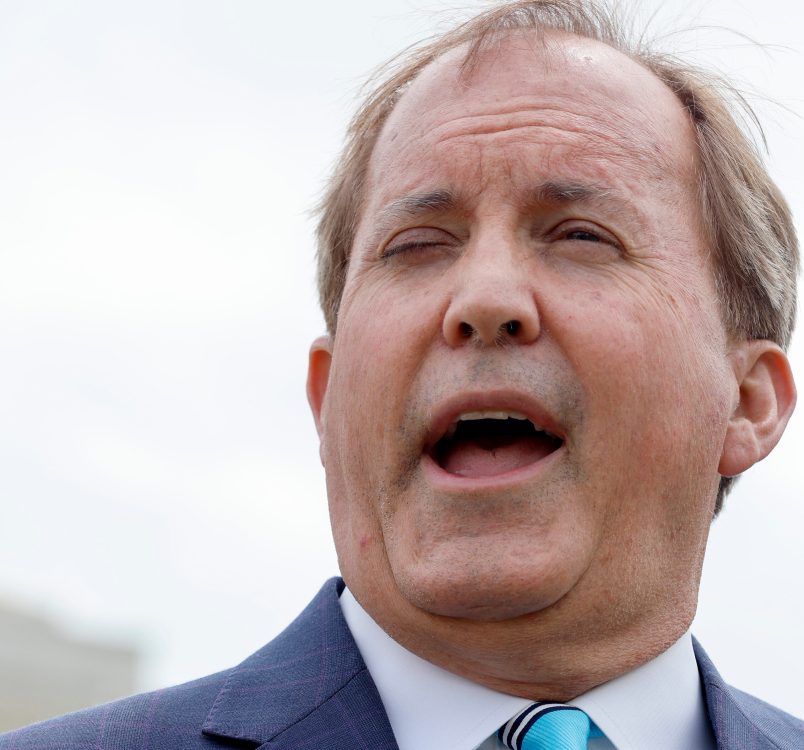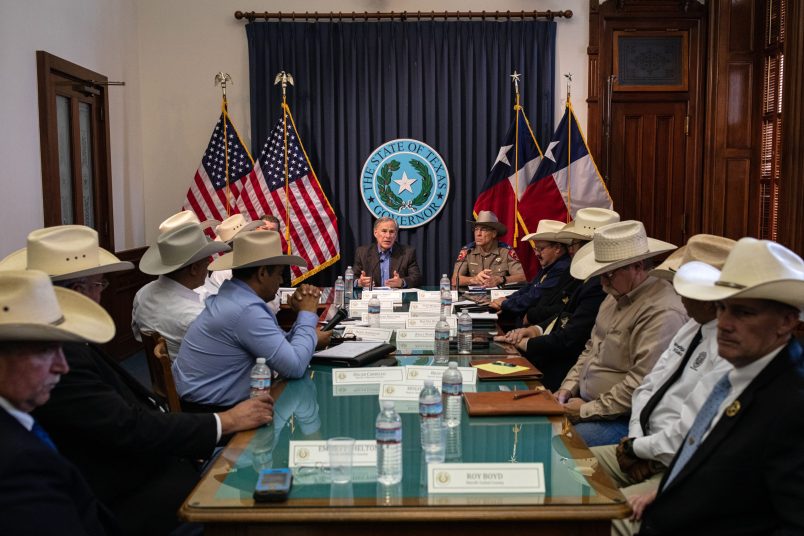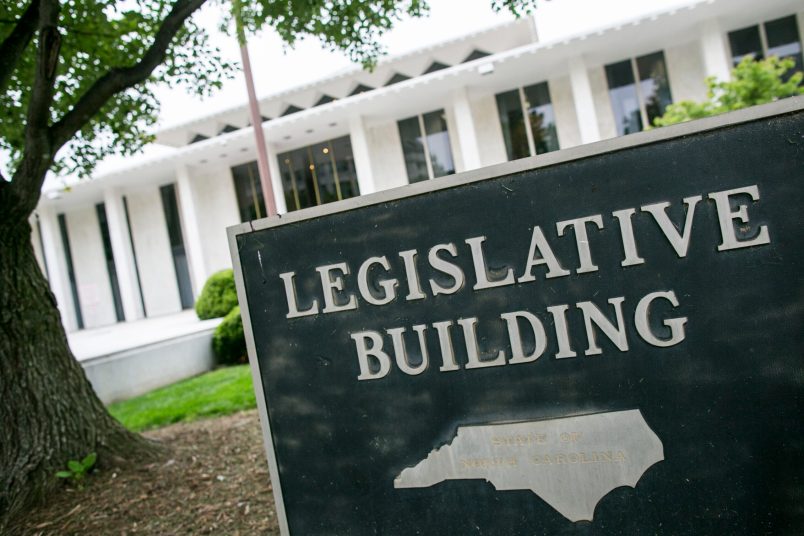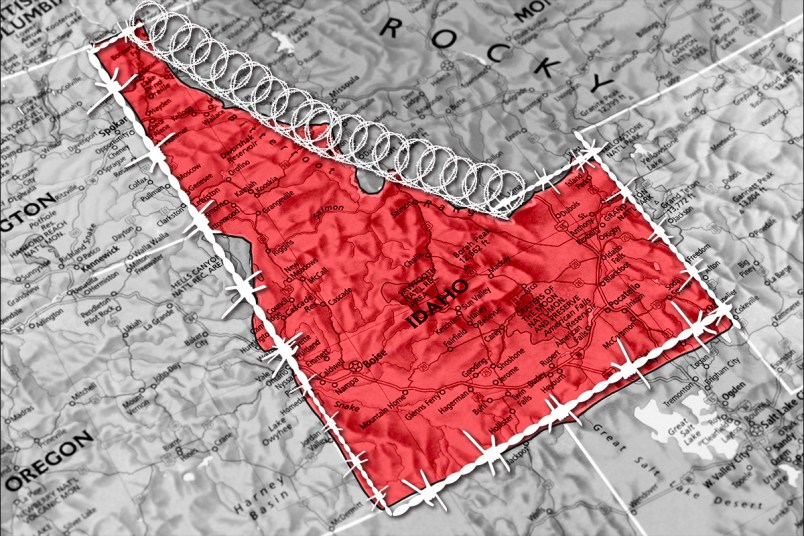Since Trump campaign chair Paul Manafort’s plea deal fell apart last year amid accusations from prosecutors that he had lied to them (and separate claims in the press that he had funnelled information to President Trump), there’s been little to pierce the veil of what Manafort was discussing with the special counsel prosecutors about their ongoing investigation.
But an unsealed, partially redacted transcript of a closed-door hearing in the case — held Monday to determine if Manafort allegedly broke his plea agreement by lying to the government — reveals new details about the inside of the Mueller investigation.
Specifically, the hearing before U.S. District Judge Amy Berman Jackson covered five separate areas where prosecutors accuse Manafort of lying. Those include a mysterious $125,000 payment involving a pro-Trump PAC, Manafort’s dealings with former Russian intelligence translator Konstantin Kilimnik, a separate DOJ investigation relevant to the former lobbyist, and the extent and duration of Manafort’s contacts with the Trump administration.
Mueller’s prosecutors offered to the judge a mix of theories for what motivated Manafort to lie even after he signed a plea agreement.
One of the most tantalizing possibilities prosecutors floated in a particularly heavily redacted section: that Manafort lied about an “extremely sensitive issue” in order to “augment his chances for a pardon.” It’s unclear from that section what topic Manafort was being questioned about. The quoted sections about the pardon are misattributed in the transcript to Manafort’s lawyer rather than special counsel prosecutor Andrew Weissmann.
They emphasized that the scope and severity of the lies made continuing his supposed cooperation under the plea agreement untenable.
“There were so many lies,” Weissmann put it at the hearing.
Manafort’s attorneys tried to downplay the issue, saying that the onetime jetsetter was suffering from decreased mental capacity due to his incarceration while adding that Manafort had completed “12 days of interviews, more than 50 hours, plus 24 days in the grand jury” and that the “supposed lies” were “not core issues to the things we spent most of our time talking about.”
So what were the supposed lies? We’ve listed them below:
The mystery of a $125,000 pro-Trump PAC payment scheme
Manafort is accused of lying about a mysterious payment to Rebuilding America Now PAC. With $23 million from top-line Republican donors, RAN PAC started buying advertisements for the Trump campaign in June 2016, helping him as he emerged from the Republican primary.
Prosecutors allege that Manafort lied to them about a $125,000 payment he made to the PAC in 2017. Manafort allegedly characterized the payment as a “loan,” while investigators have reportedly looked into whether it was a kickback to those running the PAC that also doubled as a way to close a debt that Manafort owed to a law firm.
“There were a number of things that we were interested in knowing about the source of funds and where money was coming from,” Weissmann said, discussing how the special counsel learned of the alleged scheme. “And there was a lot of tracing of assets that was being done.”
Weissmann added that Manafort may have come up after the fact with a promissory note to explain away the payment.
“There’s no evidence in the record that the promissory — the unsigned promissory note existed prior to the proffers in debriefings here,” Weissmann told the judge, adding that Manafort may have also lied to his tax advisor about the $125,000 payment after being indicted.
“Again, no reason to be lying to your tax advisor,” he said. “Ironically, for somebody who’s charged in two cases with tax offenses, still making a false statement to Mr. REDACTED about this.”
A Russian associate’s alleged role in witness tampering
Manafort and Kilimnik were indicted for witness tampering in June, and the transcript reveals the lengths to which Manafort went to try to protect his Russian-Ukrainian associate, as alleged by Mueller’s team.
“I think Mr. Manafort went out of his way in this instance, and I think in the next one, to not want to provide any evidence that could be used with respect to Mr. Kilimnik,” Weissmann said. “I think he clearly forgot that when he pled guilty, it was a conspiracy where he was necessarily conspiring with Mr. Kilimnik.”
Since Manafort’s indictment in October 2017, Kilimnik has relocated from Kyiv to Moscow, where Manafort attorney Richard Westling said that “Kilimnik told Manafort that he was afraid for his family.”
The issue came down to an episode during Manafort’s cooperation with prosecutors in which he claimed that Kilimnik did not know that a secret lobbying campaign he had ran on behalf of the Ukrainian government extended to the United States, and not just Europe.
After a break with prosecutors, Weissmann said, Manafort returned and said “the opposite,” telling the special counsel: “You just didn’t understand what I had said.”
“And we all knew, and the record reflects that, in fact, is another false statement. That is not what happened,” Weissmann told the judge.
Ongoing interactions with Kilimnik on issues at “heart” of probe
Manafort was in touch with Kilimnik on Ukraine policy from the time he was on the Trump campaign through 2018—an issue that Mueller’s prosecutors say has become key to their investigation.
What Manafort and Kilimnik were working on together from Manafort’s time on the campaign through to 2018 remains murky.
The hearing transcript repeatedly redacts references to what that work may have been. However, a redaction error in a previous filing last month by Manafort’s team accidentally revealed that the pair were discussing a proposed “Ukraine peace plan” across multiple meetings.
But in the transcript from Monday’s hearing, even references to discussions of that “peace plan” are partly redacted, and don’t point to whether it was an equitable proposal or a way of securing Russian gains on the ground.
Weissman told the judge that an Aug. 2, 2016 meeting at a Manhattan cigar bar, in particular, was “of significance to the special counsel.” The conversation at the Grand Havana Club occurred just days before Manafort left the campaign amid scrutiny of his ties to Russia and Ukraine.
“This goes, I think, very much to the heart of what the special counsel’s office is investigating,” Weissmann said. “There is an in-person meeting at an unusual time for somebody who is the campaign chairman to be spending time, and to be doing it in person.”
During his proffer sessions with the special counsel, Manafort said that discussions about a possible Ukrainian peace plan that would have benefited Russia ended with that in-person conversation. But prosecutors say they have evidence that Manafort and Kilimnik also discussed Ukraine policy in December 2016, over the inauguration in January 2017, in February 2016 and “even in the winter of 2018,” according to Weissman.
Weissmann emphasized that Manafort would have recalled the August meeting, in part because of the “enormous amount of attention to Russian contacts in the United States.”
Gates and Manafort left the August meeting “separately from Mr. Kilimnik,” and “by February of 2017 there had been substantial focus on General Flynn and others in terms of their contact.”
Manafort worked as a consultant for a potential candidate in Ukraine, even conducting a poll for a Ukrainian politician in 2018, after he had been indicted. Prosecutors say that the poll featured questions he had work-shopped with Kilimnik.
It’s unclear if the poll is at all related to the peace proposal that was also being discussed.
What Manafort said about “the other DOJ investigation”
Manafort’s alleged falsehoods extended to the information he provided about a separate, unspecified Justice Department investigation, Mueller’s team said. This section of the transcript sheds little light on what that probe involves.
As the judge characterized it, Manafort “offered a version of events that downplayed role and/or his knowledge” about events under investigation.
Weissman said this was wasn’t just a matter of a witness forgetting minor details. Instead, he said, Manafort told a detailed story that “we thought was potentially optimistic in terms of providing information” during his proffer session with prosecutors prior to his plea agreement.
In subsequent discussions with prosecutors, Manafort offered a “very watered-down” and “less incriminating” version of events, prosecutors alleged.
Lying about continued contacts with Trump administration
One of the most tantalizing portions in the transcript covers allegations that Manafort lied about staying in contact with the Trump administration after his indictment, including about some potential personnel appointments.
For the first time, special counsel prosecutors appear to have acknowledged that Manafort may have been feeding information about the investigation to the Trump Administration.
“He constantly either minimizes the information he has about the administration or any contact with the administration,” said prosecutor Greg Andres. “So there’s an issue whether or not during his cooperation he’s communicating with or providing information about the questions or other things that are happening in the special counsel investigation, whether he’s sharing that with other people.”
The New York Times reported in November that Manafort’s attorney, Kevin Downing, had briefed the Trump team on the substance of Manafort’s testimony.
Special counsel prosecutors repeated throughout the hearing that they had “no problem” with defense counsel, but appeared to home in on Manafort himself.
“Again, Mr. Manafort is trying to distance himself from the administration and saying he’s not having contact with the administration at a time when he’s under at least one indictment,” Andres said.


